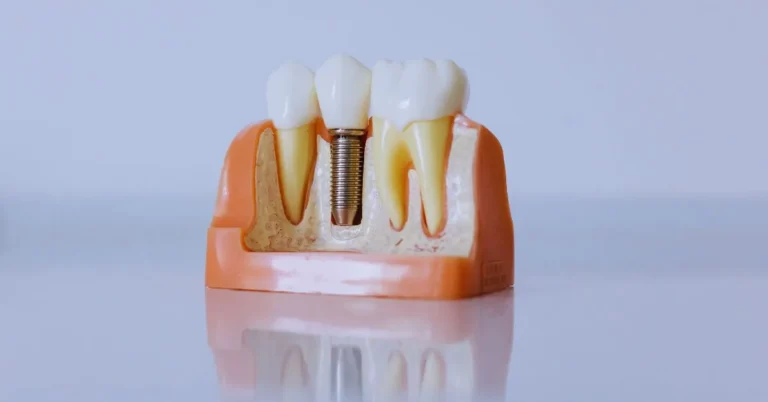When Should You See an Allergy Specialist?
Are you struggling with sneezing fits, itchy eyes, or constant congestion? You might need to see a specialist who understands how your immune system reacts to the world around you. An allergy specialist can identify the root cause of your symptoms and offer treatments that let you breathe easier and live more fully.
Jaipur is known for its historic palaces and vibrant culture, but seasonal allergies can make days in the Pink City less pleasant. If you often catch yourself coughing or sneezing, consider talking to an allergy specialist in Jaipur. These experts can help you pinpoint triggers, from pollen to pet dander and guide you back to a more comfortable life.
What Is an Allergy Specialist?
An allergy specialist, also called an allergist/immunologist, is a doctor trained to diagnose and treat conditions that arise when the immune system overreacts. Your immune system protects you from infections by identifying and fighting harmful invaders like bacteria and viruses.
In people with allergies, this system mistakes harmless substances such as dust mites or certain foods for threats, causing symptoms that range from mild discomfort to life-threatening reactions.
Allergy specialists also manage asthma, which involves inflammation of the airways, and primary immunodeficiency disorders, a group of genetic conditions that weaken the immune response. By focusing on how your body’s defense mechanisms work and sometimes misfire, allergists help you control symptoms and protect your long-term health.
Common Conditions Treated by Allergy Specialists
Allergy specialists manage a wide range of conditions that affect various parts of your body:
- Allergic Rhinitis (Hay Fever): Sneezing, nasal congestion, and itchy eyes caused by pollen, mold, or dust.
- Asthma: Inflammation and tightening of the airways leading to wheezing, coughing, and shortness of breath.
- Food Allergies: Immune reactions to foods such as peanuts, shellfish, or dairy that can trigger hives, swelling, or nausea.
- Eczema (Atopic Dermatitis): Chronic skin inflammation that causes itching and rashes.
- Insect Sting Allergies: Severe reactions to bee or wasp stings, which can include swelling and anaphylaxis.
- Drug Allergies: Adverse immune responses to medications like penicillin or aspirin.
- Hives (Urticaria): Raised, itchy patches on the skin that appear suddenly and may spread.
- Anaphylaxis: A life-threatening, rapid allergic reaction requiring immediate treatment.
- Primary Immunodeficiency Disorders: Genetic conditions that leave the body vulnerable to infections.
If you or your child suffers from any of these issues, an allergy specialist can create a plan to manage symptoms and improve quality of life.
Signs You Should See an Allergy Specialist
Not all sniffles or skin rashes require a specialist’s care. However, you should consider seeing an allergy specialist if:
- Long-term or Severe Symptoms: You suffer from chronic sneezing, congestion, or coughing that does not improve with over-the-counter treatments.
- Life-Threatening Reactions: You experience facial swelling, difficulty breathing, or a sudden drop in blood pressure after exposure to a food, insect sting, or medication.
- Uncontrolled Asthma: You still have wheezing or shortness of breath despite using prescribed inhalers and medications.
- Unidentified Triggers: You have symptoms but cannot pinpoint what causes them.
- Impact on Daily Life: Allergies or asthma force you to miss work, school, or favorite activities.
- Frequent Infections: You get colds that last unusually long or lead to sinus or ear infections.
- Skin Conditions: You have eczema or hives that flare up regularly without a clear cause.
- Failure of Standard Treatments: Over-the-counter or primary care treatments do not offer relief.
How Allergy Specialists Test for Allergies
Allergy specialists use a variety of tests to identify the substances that trigger your symptoms:
- Skin Prick Tests: A small amount of allergen is placed on your skin using a tiny prick. The doctor observes your skin for redness or swelling at the test sites.
- Scratch Tests: Similar to skin pricks but involves a shallow scratch on the skin’s surface.
- Blood Tests (Specific IgE): These tests measure the level of allergy antibodies in your blood for common triggers like peanuts, pollen, or pet dander.
- Patch Tests: Small patches containing potential skin allergens are applied to your back and left in place for 48 hours to check for delayed reactions.
- Food Challenge Tests: Under close supervision, you consume increasing amounts of a suspected allergen to see if a reaction occurs. This test is done in a medical setting with emergency treatments on hand.
Based on test results, the allergist identifies your triggers and tailors a treatment plan.
What to Expect at Your Allergy Specialist Appointment
During your first visit, the allergist will:
- You’ll discuss your symptoms, their timing, and any family history of allergies or asthma.
- The doctor will examine your skin, eyes, nose, throat, and lungs.
- Depending on your history and exam, the allergist will suggest one or more of the tests described above.
- This may include medications, lifestyle changes, allergen avoidance strategies, or immunotherapy.
Your allergist will explain each step clearly and ensure you understand how to use any prescribed devices, such as inhalers or epinephrine injectors.
Allergy Shots and Other Immunotherapies
Immunotherapy is a long-term treatment aimed at reducing your sensitivity to allergens. It comes in two main forms:
- Allergy Shots (Subcutaneous Immunotherapy): You receive regular injections of small doses of allergens. Over time, your immune system builds tolerance, leading to fewer or milder reactions.
- Sublingual Immunotherapy (SLIT): You place allergen tablets or drops under your tongue. This method offers similar benefits to shots but can be done at home after the first dose is given in the clinic.
Both methods can reduce the need for daily medications and improve your quality of life.
Allergist vs. ENT Specialist: Which Do You Need?
Some people with chronic sinus or nasal issues see an ear, nose, and throat (ENT) specialist first. ENTs are surgeons who handle structural problems in the head and neck. They can correct issues like deviated septum or nasal polyps through surgery.
Allergists focus on treating inflammation caused by allergies or immune disorders without surgery. If your nasal or sinus problems stem from allergic inflammation, an allergist can often resolve them through testing, avoidance strategies, medications, or immunotherapy. However, if your doctor suspects a structural problem or if you do not respond to medical treatment, they may refer you to an ENT for further evaluation.
Managing Your Allergies Long-Term
Working with an allergy specialist does more than relieve immediate symptoms. It helps you:
- Knowing exactly what causes your reactions lets you avoid those substances.
- An allergist fine-tunes doses and combinations of antihistamines, nasal sprays, and inhalers for maximum effect.
- Immunotherapy works overtime to reduce your immune system’s overreaction.
- Better control of allergies and asthma means fewer missed days at work or school, more energy, and a greater ability to enjoy your favorite activities.
When to Seek Emergency Care
While most allergic reactions are manageable with the right plan, some symptoms require immediate medical attention:
- Anaphylaxis: Signs include difficulty breathing, swelling of lips or throat, rapid heartbeat, dizziness, or loss of consciousness.
- Severe Asthma Attack: If your usual inhalers do not relieve wheezing or breathlessness, seek help right away.
- Suspected Food Allergy Reaction: If you experience hives, vomiting, or throat tightness after eating, use an epinephrine injector if prescribed and go to the emergency room.
Always follow your allergist’s emergency action plan and keep prescribed epinephrine close at hand.
Conclusion
Allergic conditions and asthma can affect every part of your life, from your sleep to your ability to enjoy the outdoors. An allergy specialist brings the expertise to diagnose your triggers, customize treatment plans, and guide you toward long-term control of your symptoms. Whether you struggle with seasonal hay fever, unexplained skin rashes, or persistent asthma, seeing an allergy specialist can make a world of difference.







